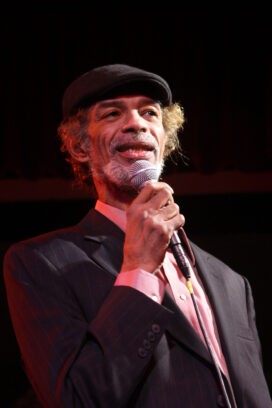Facts about Gil Scott-Heron
Gil Scott-Heron Biography
Gil Scott-Heron was the poet-rapper-singer best known for the jazzy 1970 spoken-word classic “The Revolution Will Not Be Televised.” Born in Chicago, Gil Scott-Heron was raised in Tennessee and then moved to New York as a teenager. Keen on education and writing, Scott-Heron attended Pennsylvania’s Lincoln University (the alma mater of his hero, Langston Hughes), and in 1968 published the novel The Vulture. At Lincoln he met musician Brian Jackson, who became his musical collaborator for nine of the 13 albums Scott-Heron recorded between 1970 and 1982. Gil Scott-Heron wrote bluesy songs about modern urban life, and the satiric social commentary of his spoken-word pieces has since earned him the nickname “The Godfather of Rap.” More influential than popular, Scott-Heron recorded songs including “Angel Dust,” “The Bottle” and “Whitey On the Moon.” Between 1982 and 1994 Gil Scott-Heron toured and performed, but released only two albums. He was arrested in 2001 for possession of illegal drugs and spent the next several years in and out of jail for drugs and parole violations. Gil Scott-Heron bounced back in 2010 with I’m New Here, his first album in more than fifteen years; he died the next year. His other albums include Pieces of Man (1971), From South Africa to South Carolina (1976) and Moving Target (1982), and his other singles include “Home is Where the Hatred Is,” “Johannesburg,” and “Me And The Devil.”
Extra credit
Gil Scott-Heron has also been referred to as “the black Bob Dylan“… Scott-Heron did not graduate from Lincoln University, but went on to a graduate program in Creative Writing at Johns Hopkins University, where he earned a Master’s degree.

